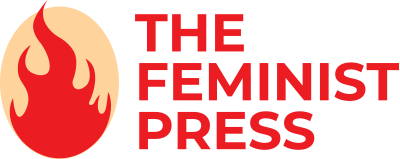"A hot day at the beginning of spring"
A hot day at the beginning of spring.
A bird was singing. Ess bent over the dirt and wrapped her hand around one weed, then another. The weeds came away in bundles of ragged leaves, some sticky with sap where she had torn their stems. They clung to the ground she pulled them from, of course they did, they wanted to live. But she was not worried about the fate of the weeds. The walkie-talkie that rested on the dry earth beside her chirruped softly. She gave it her attention for a moment, but after emitting a fumbling, breathy noise, it was silent. That’s right, she thought toward it, you keep quiet. The radios had been junk tech since before she was born, resurrected for their analogue mechanics: easy to repair and under the radar. Someone in the Network had bought a job lot from a failing security company more than fifty years ago. Ess had never even seen one before she arrived at the Basin. Communications on the walkies were far from untraceable, but no one listened on those frequencies anymore.
She stood up and surveyed the sky over the reservoir: it was flatly gray, seemed not to promise rain or really anything. It had little to tell that her skin didn’t already know: that the weather was damp, and that it was getting warmer. It had not seemed warm enough when she set out that morning, but after a few hours of work, sun working its way sulkily overhead, she was sweating.
“she dreamed of bare soil and hungry people”
She unzipped her jacket, which was at an advanced stage of life, yellow and very warm (you couldn’t get fabric like it anymore; made almost entirely of petroleum). She ran her hand through the soil, disturbed with weeding. The Basin was the newest of the Network’s outposts, and their goal of self-sufficiency was still in its infancy. There were other gardeners living here, and Ess knew it was egoistic to feel this goal as a personal responsibility, a waste of energy to carry it as a burden. But still she was disturbed at night by tasks undone, obstacles unforeseen, and when she did sleep, she dreamed of bare soil and hungry people, though she knew the Network would never let them starve. It was one of the reasons people joined: to be fed.
The ground beneath her hand was clumpy and hard. Furrows wove ahead and behind, all the same uncompromising texture. It wasn’t promising, but she chose to be optimistic. Water came down long and hard most springs, and even if this year it did not, most of the nearby reservoirs still held a bountiful supply. They had dug compost in, heaps of it barrowed and dumped and turned over into the topsoil, spade after heavy spade of it. Her arms still ached. For weeks they had been brewing comfrey and nettles in stinking buckets to make plant feed. This earth would bear what they had sowed; she was sure. Already all the available sills of the low brown buildings nearby bore their plain squared trays of earth. Inside each square was one, two, or even three seeds, and Ess examined them daily. So far, the little squares remained featureless: no indication yet of the miraculous activity taking place beneath the surface. If, indeed, any was taking place. She had no way of knowing at this stage. She had only faith.
Out here there was more: tubular green arms rising from the onion patch, frizzy little heads of infant kale. The red-veined leaves of beetroot were real joy: so small, but if she crouched down the frail lines of color would sing to her.
Her hand ran over a medium-sized stone; she pulled it up too. It was a plain, gray pebble, boring really. But as she turned the stone it split along a fault line she had not detected, and suddenly there were two halves in her palm. There was nothing spectacular about the inside, either. It was a shiny, glassy kind of inside, also gray, but approaching blue. There was a tart, metallic look to it that made her think of the inside of a very rare steak. Saliva rushed into her mouth. It had been a long time since she had eaten a steak. Unlikely she would ever again. She let one half of the pebble fall to the ground and put the other half in her pocket. The walkie-talkie chirruped again, mumbled out some static. She eyed it with some irritation: Could people not leave her alone? But then, she hadn’t come here to be alone. She was part of what she called a collective, what her mother called a cult. The walkie-talkie asked for her by name. She picked it up and put the speaker to her mouth.
From A Line You Have Traced by Roisin Dunnett. Copyright © 2025 by Roisin Dunnett.
About A LINE YOU HAVE TRACED:
Against a backdrop of growing violence and environmental collapse, three women living centuries apart search for meaning and connection by becoming obsessed with a mysterious red book.
In post–World War I London, Bea encounters an uncanny figure she believes is an angel as the life she is building in the Jewish East End is threatened by fascists. In contemporary East London’s underground queer scene, Kay parties with her friends while imagining herself visited by time travelers. And years in the future, Ess—part of a collective preparing for the end of human life on earth—prepares to make a journey into the past to possibly help save the present.
A Line You Have Traced asks what we owe to those who will come after us, and what it might cost us.
Roisin Dunnett holds a degree in English literature from Clare College Cambridge and an MA in creative and life writing from Goldsmiths, where she was longlisted for the Pat Kavanagh Prize in 2022.



